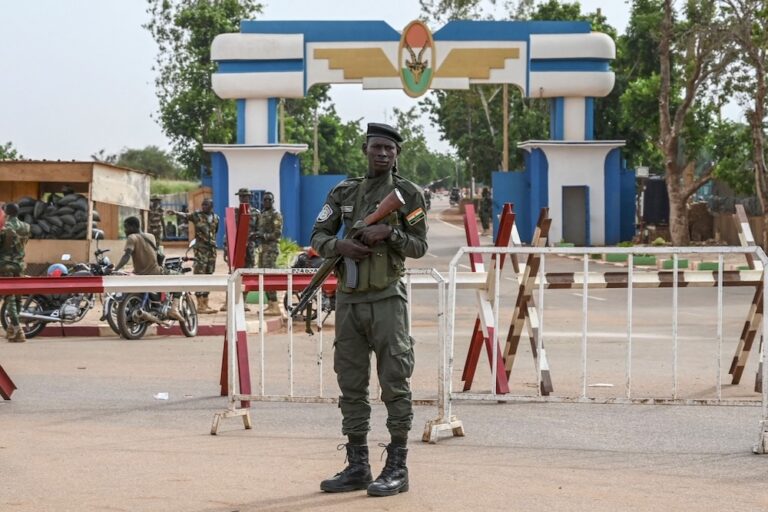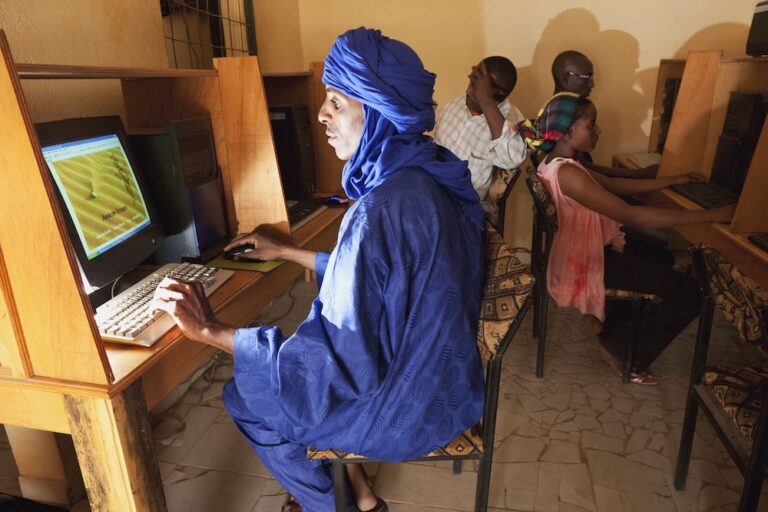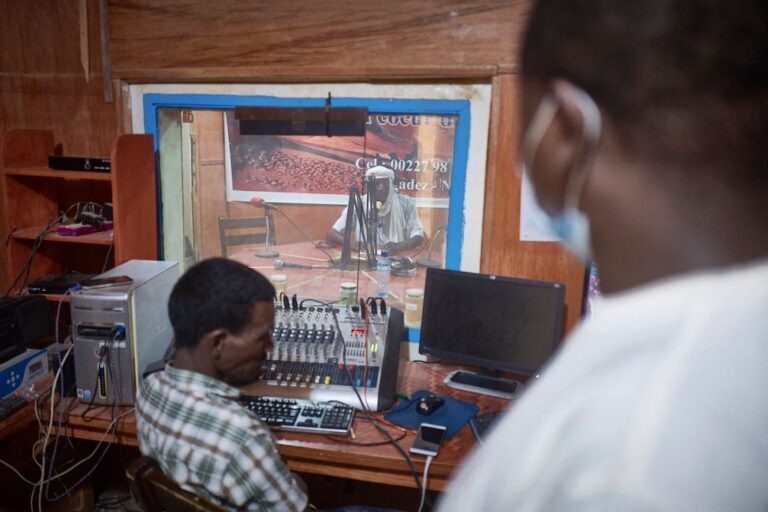(ARTICLE 19/IFEX) – In a letter to President Mamadou Tadjia, ARTICLE 19 condemned the imprisonment of Elhadji Bagnou Bonkoukou, the 75-year-old president of the Niger Human Rights League (LNDH), for allegedly disseminating “false news”. ARTICLE 19 has been following with interest the evolution of media related events in Niger and is gravely concerned at the […]
(ARTICLE 19/IFEX) – In a letter to President Mamadou Tadjia, ARTICLE 19 condemned the imprisonment of Elhadji Bagnou Bonkoukou, the 75-year-old president of the Niger Human Rights League (LNDH), for allegedly disseminating “false news”.
ARTICLE 19 has been following with interest the evolution of media related events in Niger and is gravely concerned at the way the government of Niger has increasingly curtailed its citizens’ right to freedom of expression and information over the recent period.
According to ARTICLE 19’s sources, Bonkoukou was arrested on 14 August 2002 by the Niamey Criminal Investigation Department for statements he had made on local radio stations and on the BBC, in which he cast doubts on the official verdict of the death tolls in two separate clashes at Diffa and Niamey, between army mutineers and forces loyal to the government. The minister of national defence had given an official casualty figure of two deaths (one of the mutineers and one of the loyal forces) and 72 unaccounted for. Another 217 of the mutineers were said to have been arrested.
The LNDH president, however, maintained that given the level of violence in the two clashes, the civilian and army casualties were probably higher and called for an independent inquiry into the events. Following those statements, he was detained for close to one month, before being charged on 5 September.
Mediation efforts by the president of the Interafrican Human Rights Union (UIDH) and Media Foundation for West Africa (MFWA) board member Halidou Ouédraogo to secure his release proved fruitless.
ARTICLE 19 is further concerned by the threats and detention of journalists under criminal defamation, insult and national security legislation. Despite international trends to do away with criminal defamation, President Tadjia’s government uses such repressive laws against the independent media to protect public figures from scrutiny.
Recommended Action
Send appeals to the president:
– recalling that the right to freedom of expression and information is guaranteed and protected by the provisions of international instruments and treaties signed and ratified by the government of Niger, notably the Universal Declaration of Human Rights (Article 19), the International Covenant on Civil and Political Rights (Article 19) and the African Charter on Human and Peoples’ Rights (Article 9)
– further noting that these provisions obligate his government, as a state party, to safeguard the respect of this right
– calling for the unconditional release of Bonkoukou and all journalists in detention
– urging his government to stop the repressive use of the law to silence critical voices in the country and to deny access to public information
– further calling on his government to uphold freedom of expression and information of both citizens and the media
Appeals To
President Mamadou Tadjia
Presidential Palace
Niamey, République de Niger
Fax: +227 73 22 45Please copy appeals to the source if possible.


